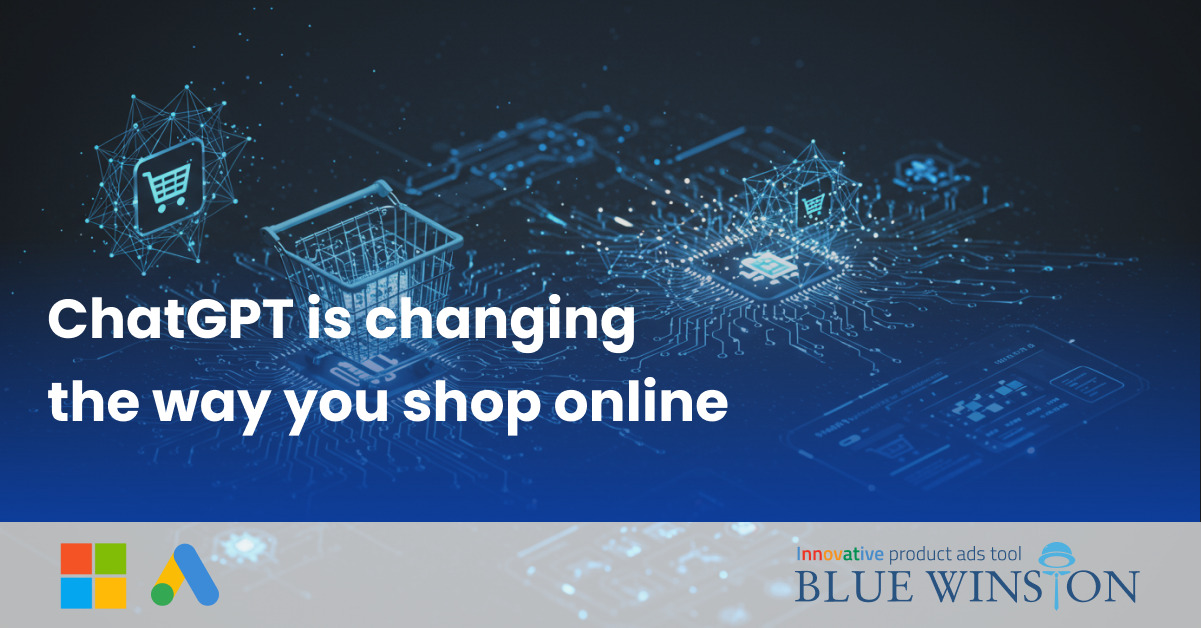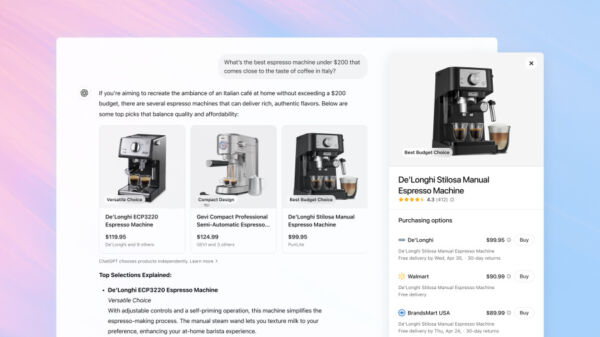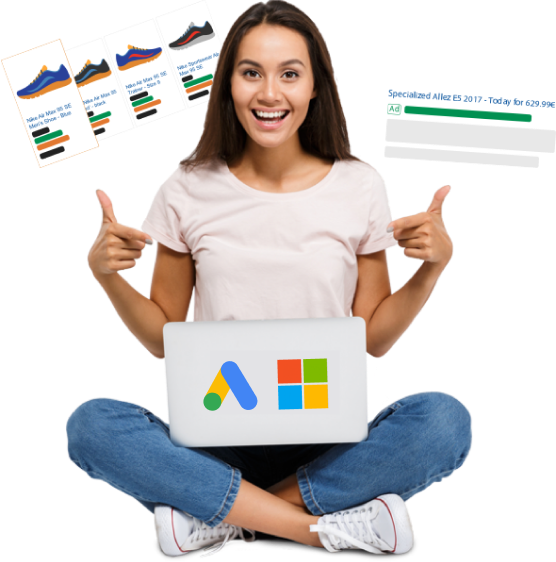A New Era of Personalized Online Shopping
ChatGPT is no longer just a tool for generating text or answering questions. OpenAI is expanding its capabilities into the realm of online shopping – and it’s doing so in a way that fundamentally differs from traditional search engines or e-commerce platforms.
ChatGPT Shopping Ads
The new shopping feature in ChatGPT is available worldwide, including for free users and those not logged in. For now, it focuses on four main categories: fashion, beauty, home goods, and electronics.
Unlike traditional search engines or e-commerce advertising platforms, ChatGPT Shopping Ads do not function as paid advertisements. When a user enters a query in natural language – for example, “What’s the best coffee machine under €200?” – ChatGPT displays relevant product recommendations along with photos, prices, reviews, and direct links to websites where the products can be purchased.
Conversation as the Key to Success
What sets ChatGPT apart is the way it generates these recommendations. Instead of relying on traditional keyword-based search, it uses a conversational understanding model. This means it takes into account how people talk about products – what they praise, what they criticize, and which features matter most to them.
Source: x.com/OpenAI
Moreover, if a user has previously mentioned specific preferences—such as only shopping for black clothing from a particular retailer – ChatGPT can remember this and tailor future recommendations accordingly. However, this personalization through memory is currently limited and not yet available to all users.
ChatGPT Shopping Ads – NOT Traditional Advertising Content
Although they’re referred to as “Shopping Ads,” ChatGPT’s approach does not involve traditional advertising. OpenAI does not earn revenue from the recommended products, does not take commissions from sales, and the results are not influenced by advertisers. Recommendations are primarily generated based on independent, structured third-party data, which includes up-to-date prices, product descriptions, reviews, and ratings. These are not paid placements, so users can trust that the recommendations are objective, relevant, and unbiased.
The introduction of these shopping features is part of OpenAI’s broader strategy to compete with Google – especially in the field of search. In recent months, ChatGPT has seen significant growth in web searches, now exceeding one billion per week. Beyond shopping, it also offers features such as auto-completion of questions, trending search suggestions, and integration into apps like WhatsApp. The result is a conversational search experience that is fast, accurate, and tailored to each individual user.
How Can E-commerce Stores Benefit?
For marketers and brands, this marks the beginning of a new challenge. Just as SEO strategies had to evolve years ago, it will now be essential to understand how recommendations within ChatGPT Shopping Ads work. The key factors will be the quality of product descriptions, positive reviews, transparency, and reliability – not the size of the advertising budget.
However, if advertisers want their products to appear among ChatGPT’s recommendations, it’s not enough to simply offer high-quality goods. It’s important that their products are actively listed on relevant advertising platforms that ChatGPT draws its data from—such as Microsoft Ads. In other words, visibility in ChatGPT starts with a well-crafted advertising strategy that ensures product listings are fed into the AI systems and shopping platforms powering these recommendations.
This presents a unique opportunity for advertisers to try a modern approach to online advertising via Microsoft Ads—completely free until January 1, 2026, thanks to a partnership with BlueWinston. With the growing influence of AI on consumer shopping behavior, it’s crucial to explore new channels that allow for more personalized and effective customer engagement.
Try Microsoft Ads for Free with BlueWinston
While ChatGPT Shopping Ads currently don’t function as paid advertising, it’s only a matter of time before similar AI-powered recommendations become a standard part of the online shopping experience. That’s why now is the perfect time to experiment and explore alternative advertising platforms like Microsoft Ads, which can reach audiences on Bing, Yahoo, and other partner networks. And the best part-you can try it completely free through BlueWinston for 90 days.
Each e-shop will receive advertising credits, free campaign setup, and expert support from PPC specialists. Additionally, they’ll have access to advanced automation tools such as M.Ads Product Search campaigns, Performance Max (P.Max) campaigns with a P.Max Product Labelizer, and AI bidding tools.
Combine the Power of AI with Zero Costs
With the growing importance of artificial intelligence in online marketing, effective automation is now essential. Thanks to BlueWinston and the Microsoft for Free offer, e-shops can ride this trend, test new consumer shopping behaviors, and prepare for a future where success won’t be determined by budget—but by quality and relevance.
 Get Microsoft Ads setup, tools and coupon for
Get Microsoft Ads setup, tools and coupon for  free!
free! 









